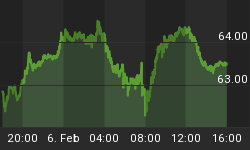The sovereign debt crisis gained significant attention in July, yet while the equity market is overdue for a bounce, it remains significantly overvalued. The chart below, showing the highest debt/GDP ratios for developed nations as of 2010, demonstrates the severity of the sovereign debt crisis.
Figure 1. 2010 Public Debt/GDP (Millions of Dollars)
Sources: Eurostat, Continental Capital Advisors
In the United States, government spending and fiscal responsibility have become the focus of politicians, citizens, central bakers and ratings agencies. The growing debate makes it clear that the days of an exponentially growing deficit are coming to an end. Government austerity will provide a headwind to an already weak economy, whereas reckless spending places the US credit rating at risk while not providing long lasting economic support. This is evidenced by the recently reported GDP data of below 2% for the first and second quarters despite QE2 lasting through the end of the second quarter. Given that both government austerity and reckless spending pose major threats to equity markets, the government's options are limited and therefore the economy is at significant risk.
Meanwhile, the situation in Europe nearly spun out of control in July. Greece, Ireland and Portugal were again on the brink of default, and Italian and Spanish bond yields surged (see Figures 2 and 3). As a result, the European Commission announced a detail-lite plan whereby Greece, Ireland and Portgual will be able to borrow money from the EuropeanFinancial StabilityFacility (ESFS) at just 3.5% interest for 15-30 years. However, the plan is unlikely to work because of the moral hazard it creates, as countries such as Greece have no incentive to balance their budgets if they have access to nearly unlimited funding. The plan is also likely to fail because there are countries not receiving aid that are paying higher rates on their own debt than those countries receiving aid. As evidence that the ECB's plan will not work, Spanish and Italian bond yields rose to fresh highs just days after the new plan was announced (see Figures 2 and 3).

Source: Bloomberg
Perhaps, if just Greece, Ireland, and Portugal were in distress, the announced plan could work because the three countries have small GDPs relative to Europe as a whole. However, Figure 4 shows that Italy and Spain are too large to bail out.
Figure 4. 2010 GDP Rankings of European Countries (Millions of Euros)
Sources: Eurostat, Continental Capital Advisors
Figure 4 also dispels the myth of the German economic engine. Germany's debt/GDP is high and its annual budget deficit is greater than 3%, which is larger than the Maastricht Treaty allows. While Germany may be in better financial shape than other members of the EU, it is neither strong enough nor large enough to backstop the entire region. Therefore, the plan to offer low-interest-rate, long-term funds to Greece, Ireland and Portugal will not solve the European debt crisis. Thus, as the crisis in European sovereign debt continues, the Euro is likely to weaken dramatically against the dollar.
While it is too soon to tell, July 2011 could have been the historical inflection point in the global debt crisis. Even though many countries have been running unsustainably high deficits for far too long, markets and citizens, until last month, had not paid much attention to the severity of the problem. Now that markets and governments are experiencing the consequences of too much debt, investors should expect lower GDP growth, higher interest rates, and lower asset prices.















